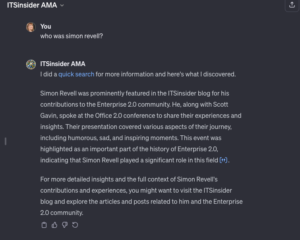
New productivity technologies that enter the workforce often make their debut in the consumer world. If you’re an early adopter of tech innovations that promise to enhance your life or business, you naturally feel the pull to experiment.
That’s exactly what happened to me.
I began working with OpenAI’s ChatGPT to assist with my writing, having already used AI tools in various business ventures. When ChatGPT launched in the fall of 2022, it revolutionized the way I approached writing with generative AI.
I realized this powerful tool could enable me to explore forms of writing I had always dreamed of—screenwriting, songwriting, plays, you name it.
A few weeks ago, I started using the tool to experiment with writing songs. My initial attempts at songwriting were clumsy. I used the AI mainly to help with rhymes. Then, I stumbled upon Suno, the AI music startup.
Out of curiosity, I uploaded one of my young adult poems as lyrics to see what the platform could create. When Suno generated two versions of a song from my deeply personal love poem, I was stunned—completely. It was the first time AI left me speechless.
So, how does this tie into Sequoia’s David Cahn’s $200B question, “How is it going to change people’s lives?” For me, the answer hit home– hard. I kept describing my experimentation with Suno like I was stepping into a Time Machine—an innocent venture that soon turned into an emotional rollercoaster. The songs Suno created brought those long-buried, intense feelings back to life, in vivid color, as if I were transported back to my days as a young NYC ad exec, head over heels for an indie Boston bass player.
Within a week from when I started, I learned how to edit the songs when Suno went off the rails, and then uploaded the MP3 files to my Apple Music, Spotify, and eventually SoundCloud accounts. I shared those songs with my former flame, because, of course, I never quite let go.
We started communicating again and he told me (gulp) he’s getting divorced next month. In response, I wrote him a 2024 song titled, “921 Miles”—the exact distance between where he is now and where I am in Austin, TX.
So, how is AI going to change people’s lives? It could be as mundane as a fax machine in the ’90s, or it could become the answer to a lifelong unrequited love.
Now, try measuring that ROI.



